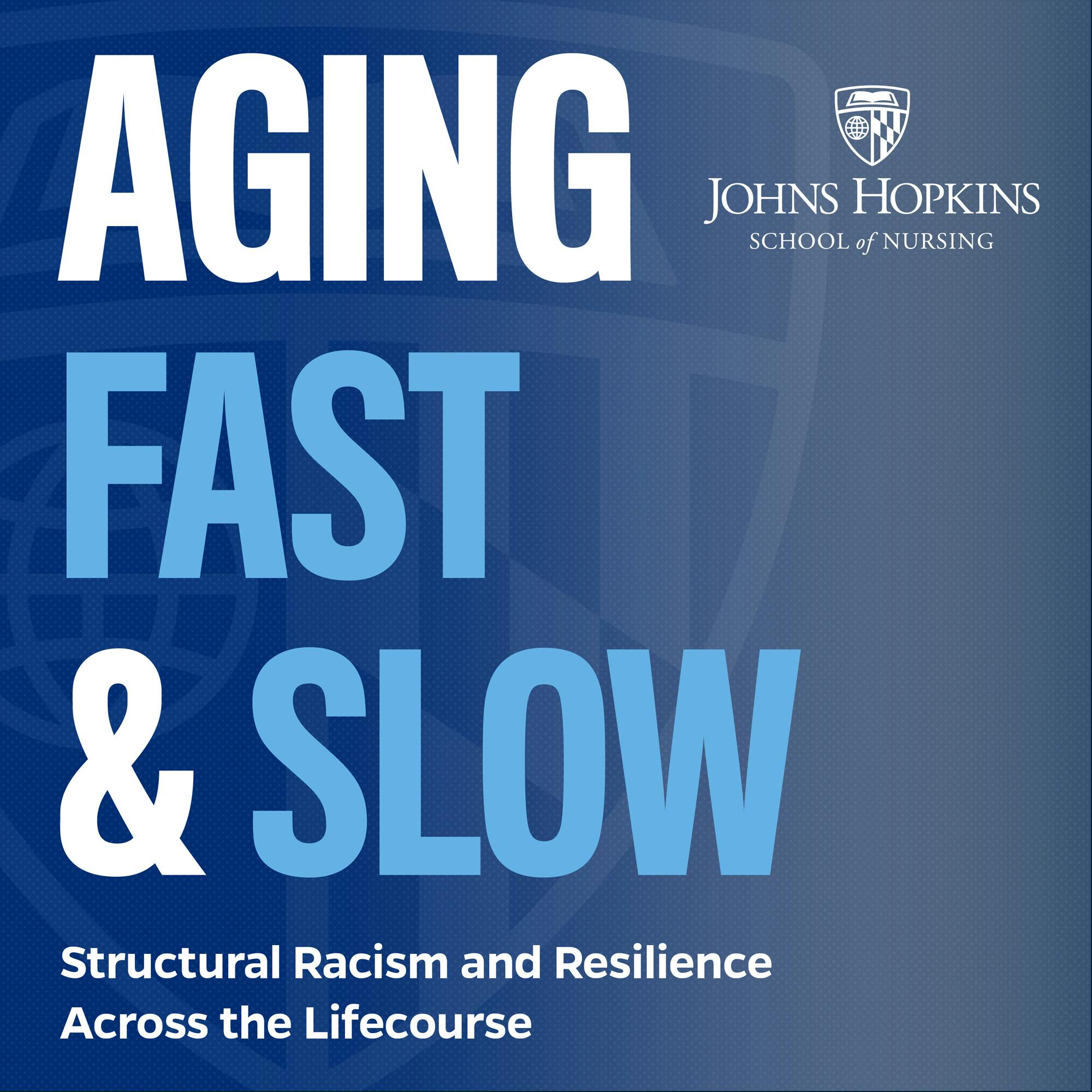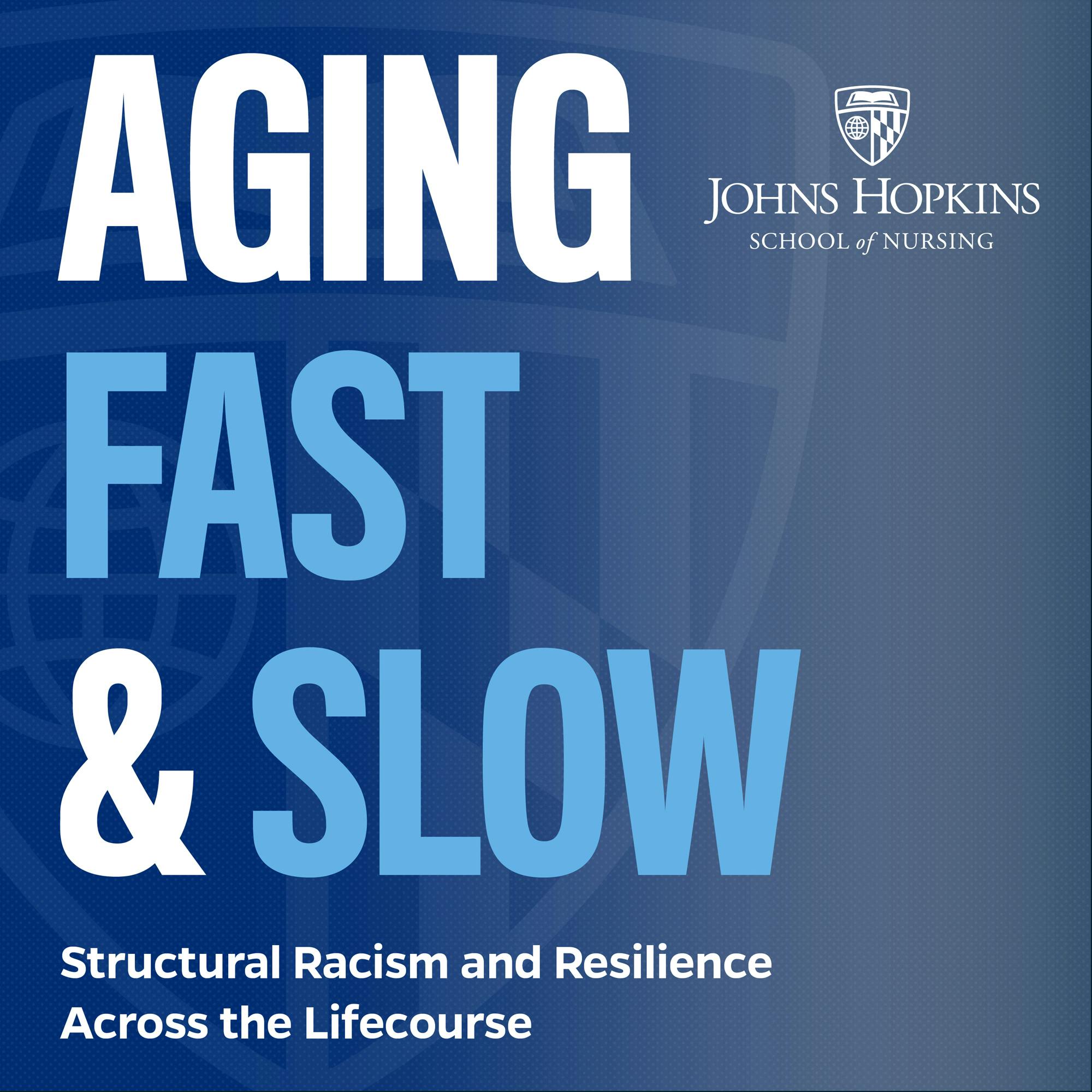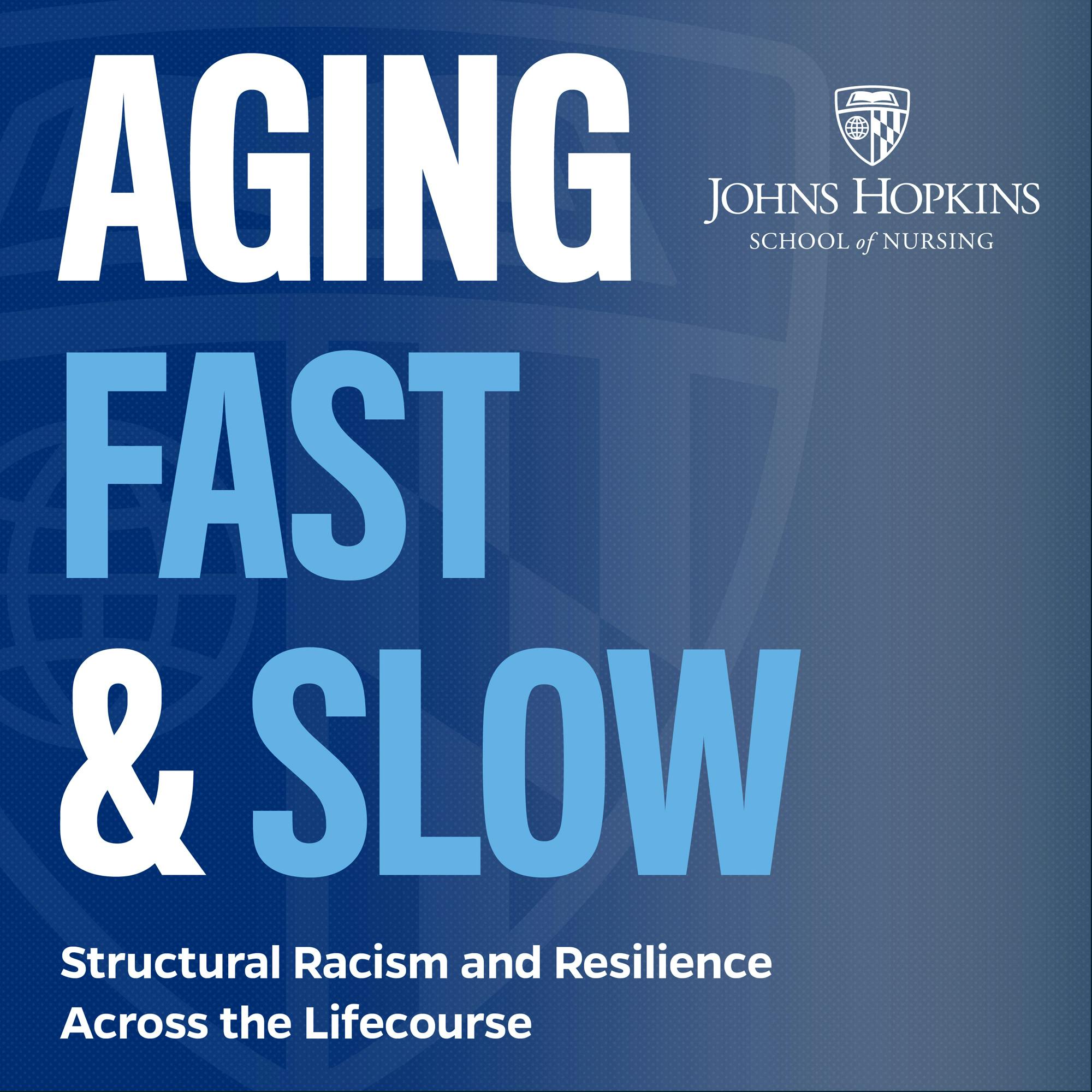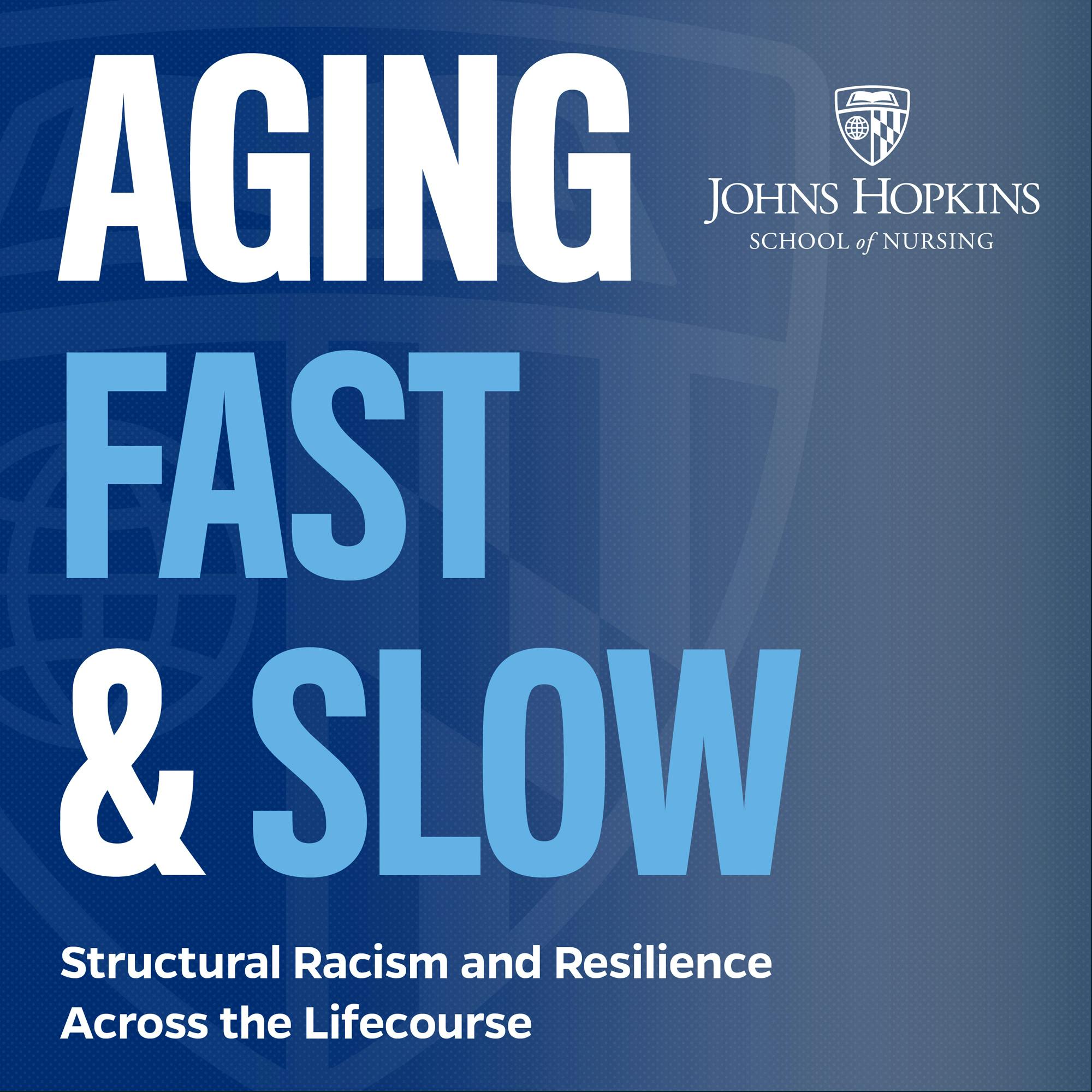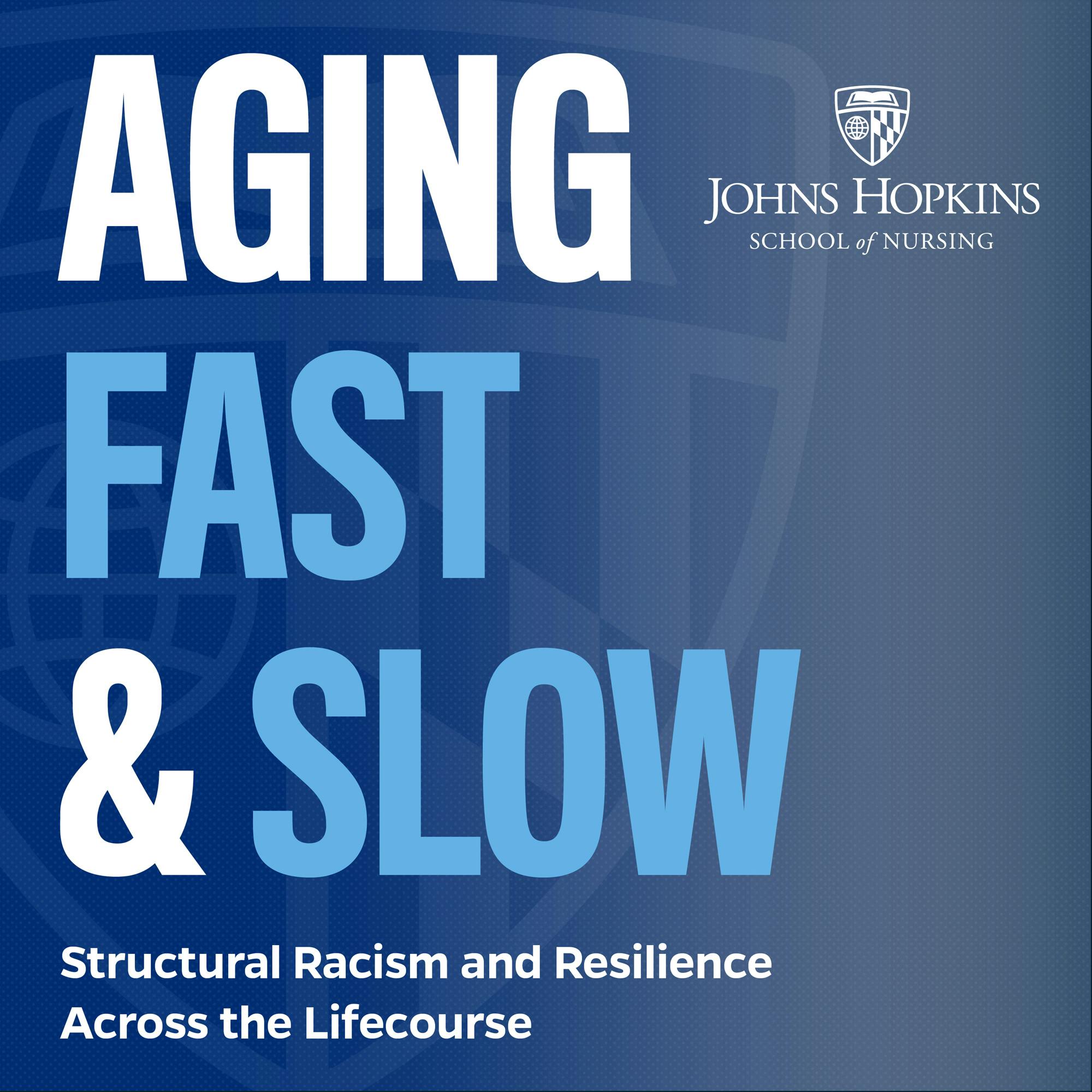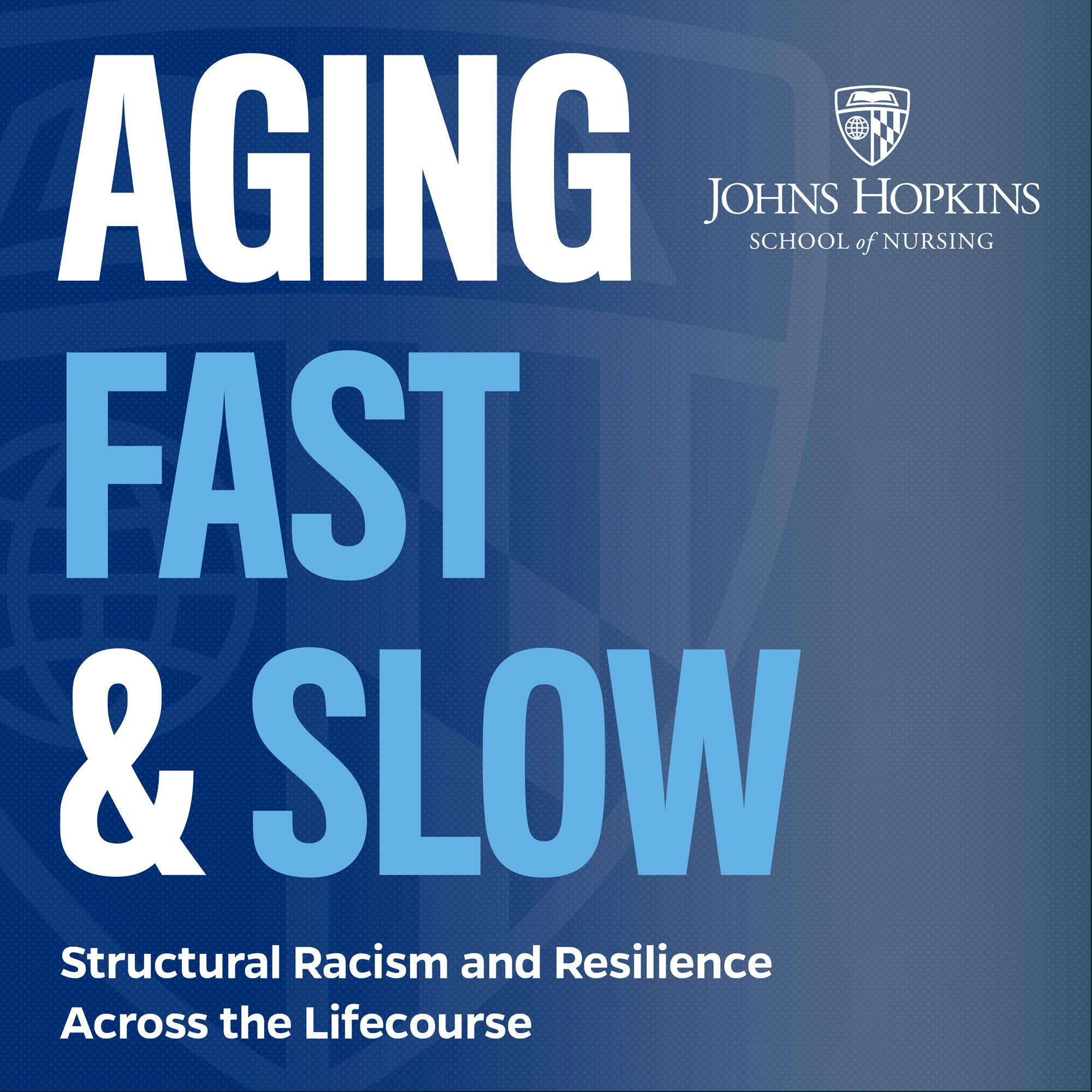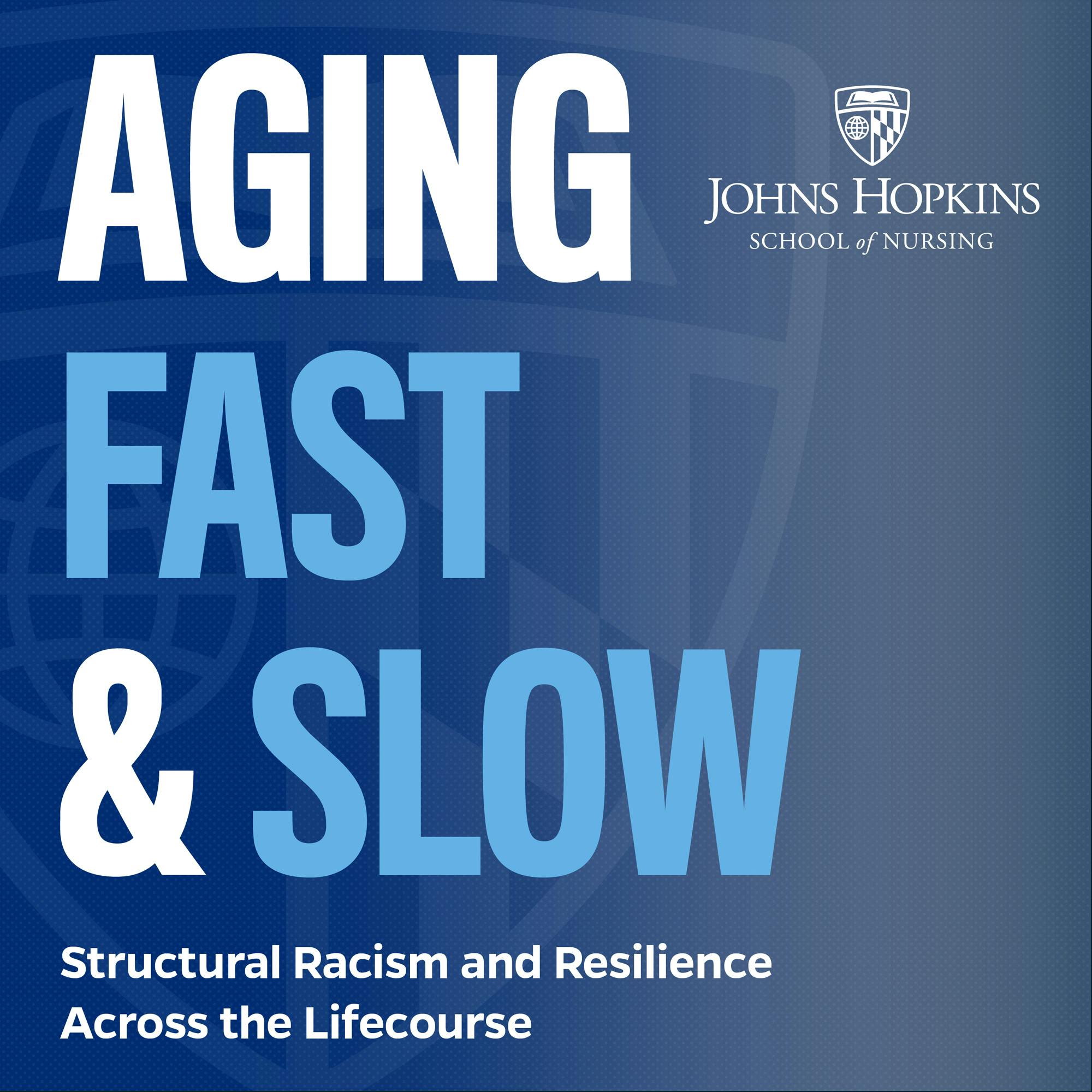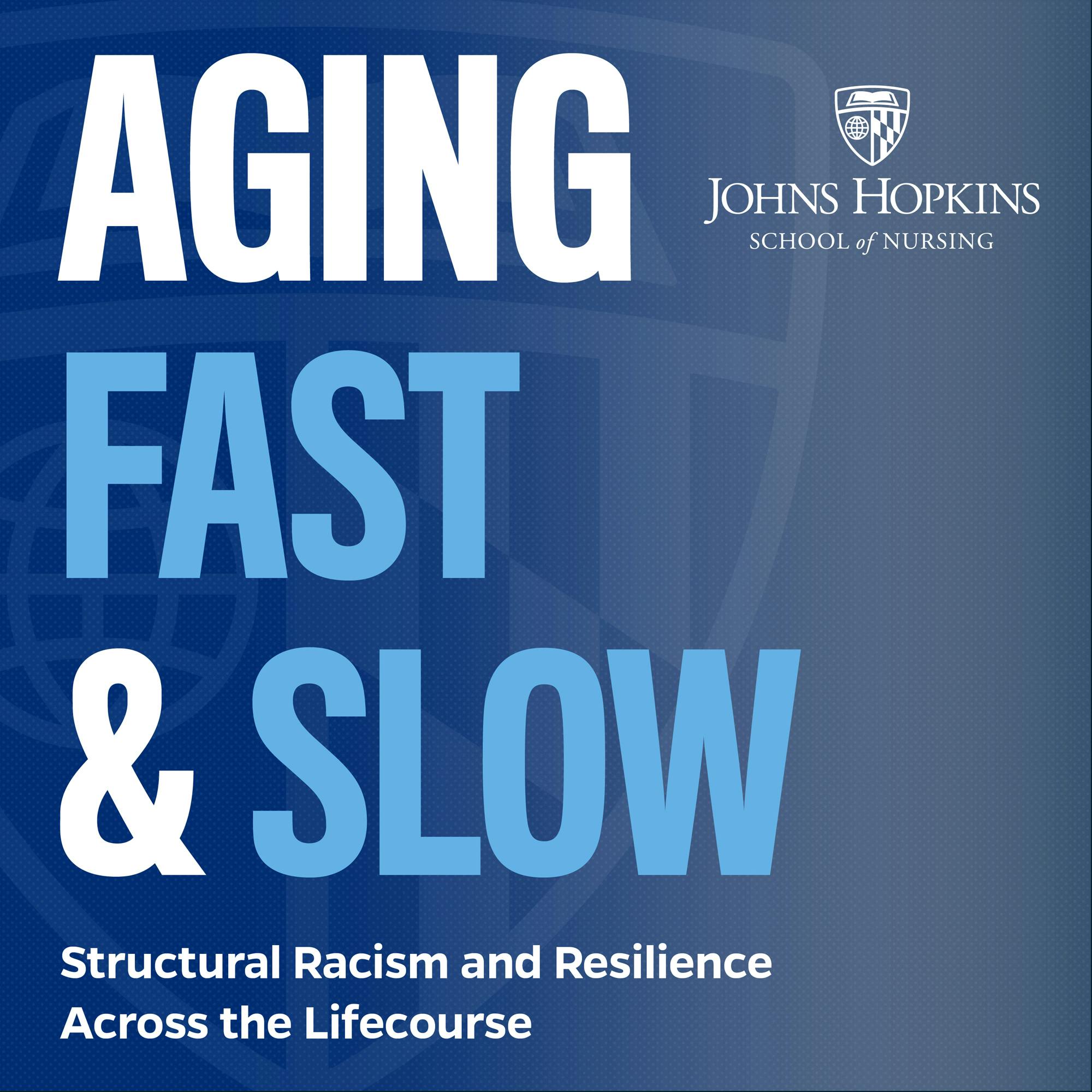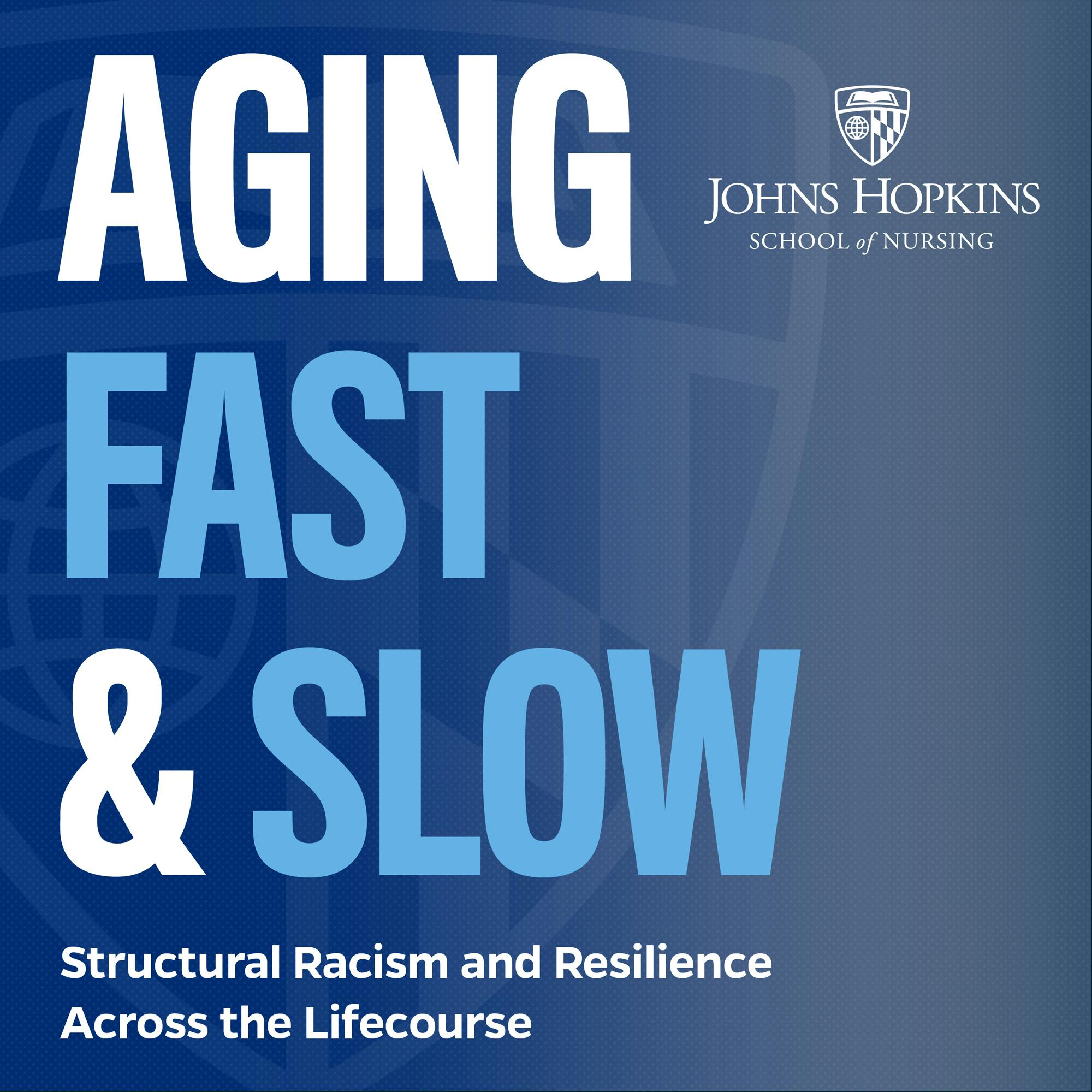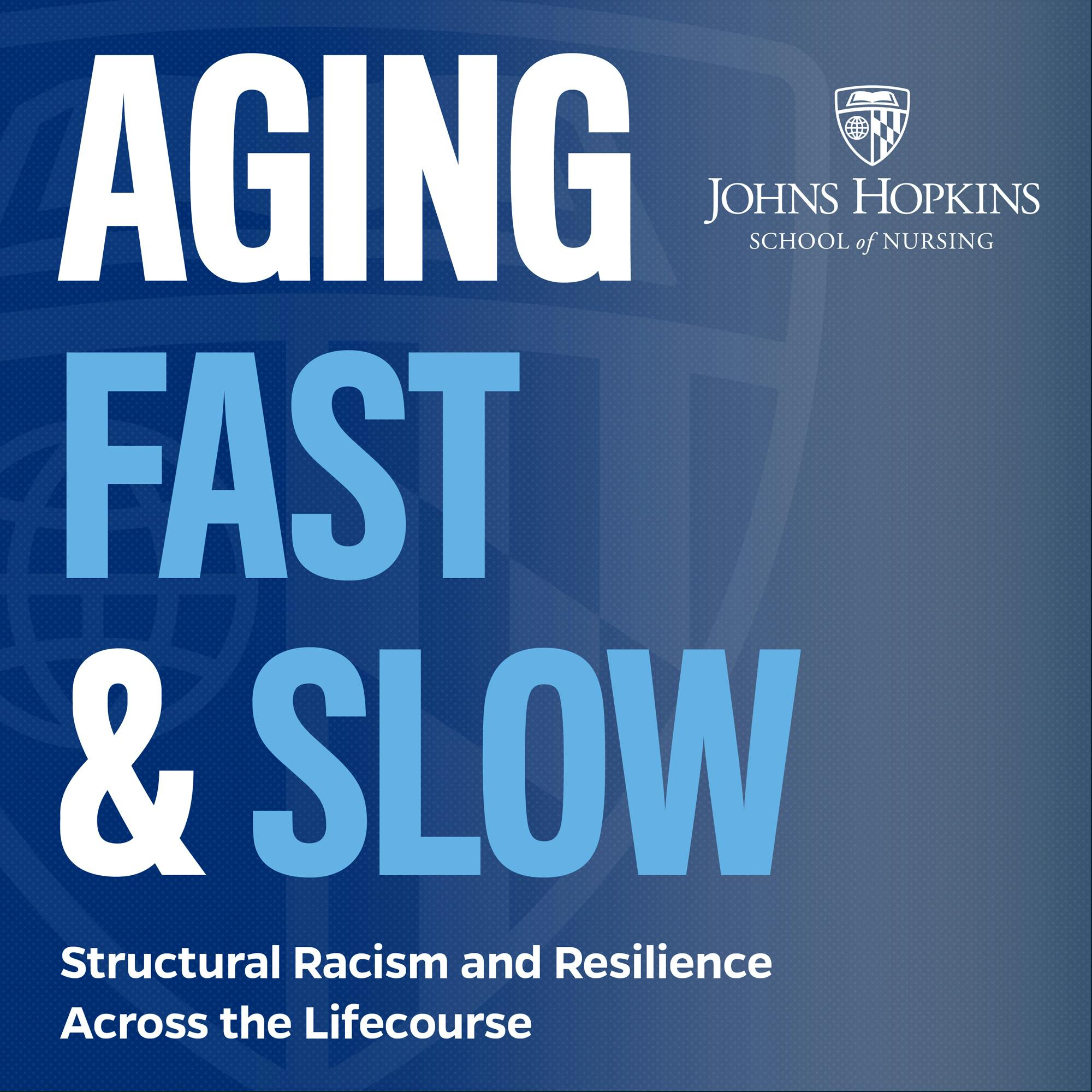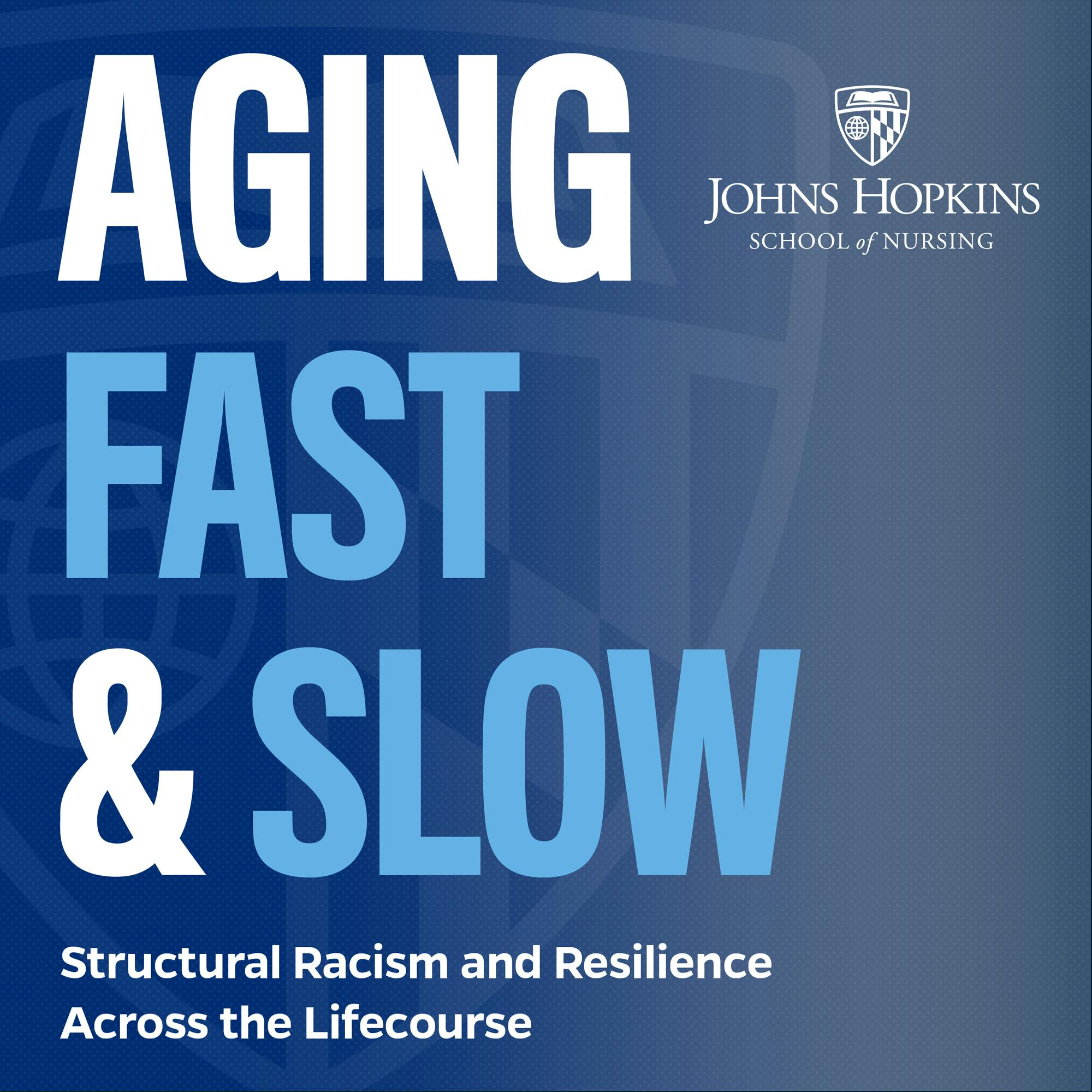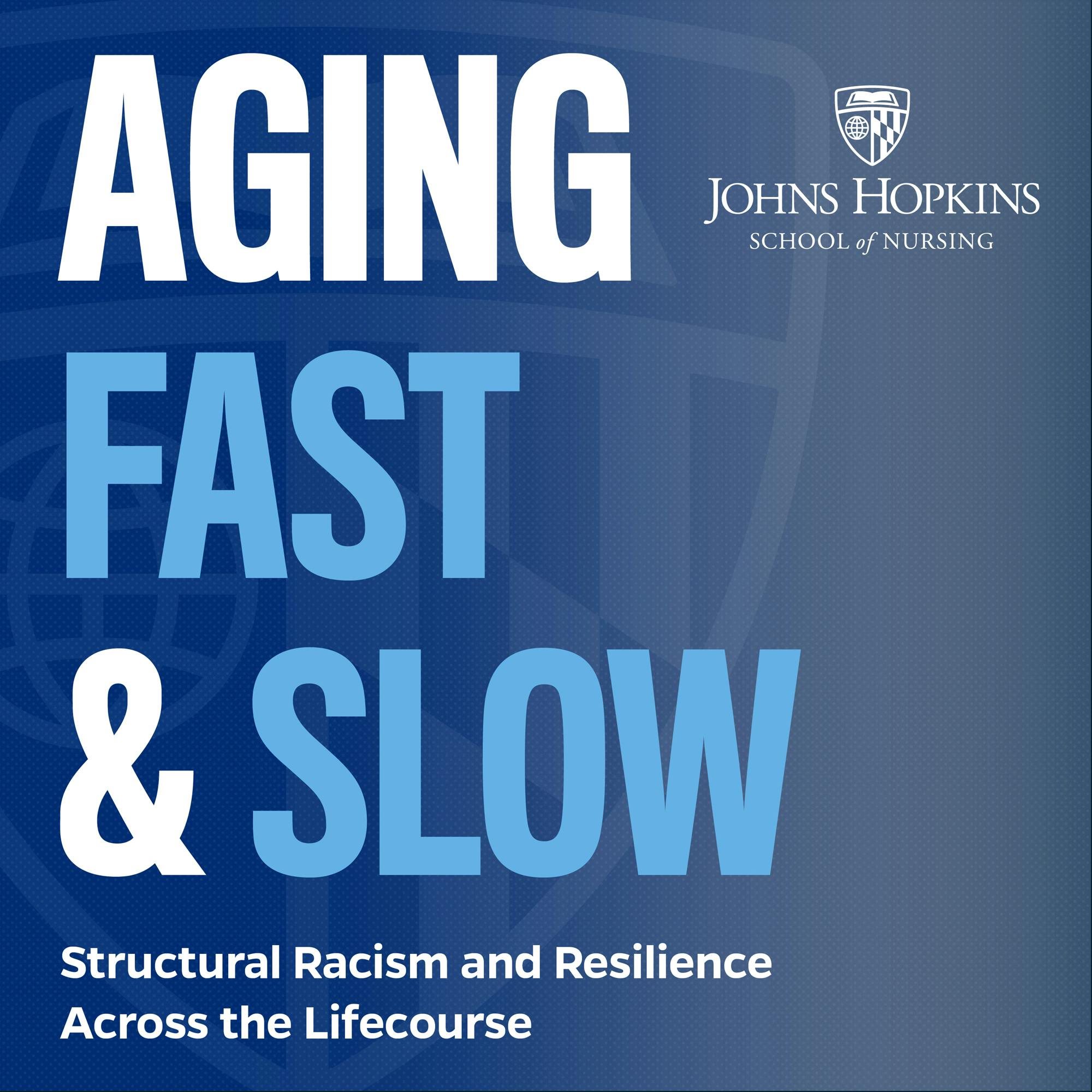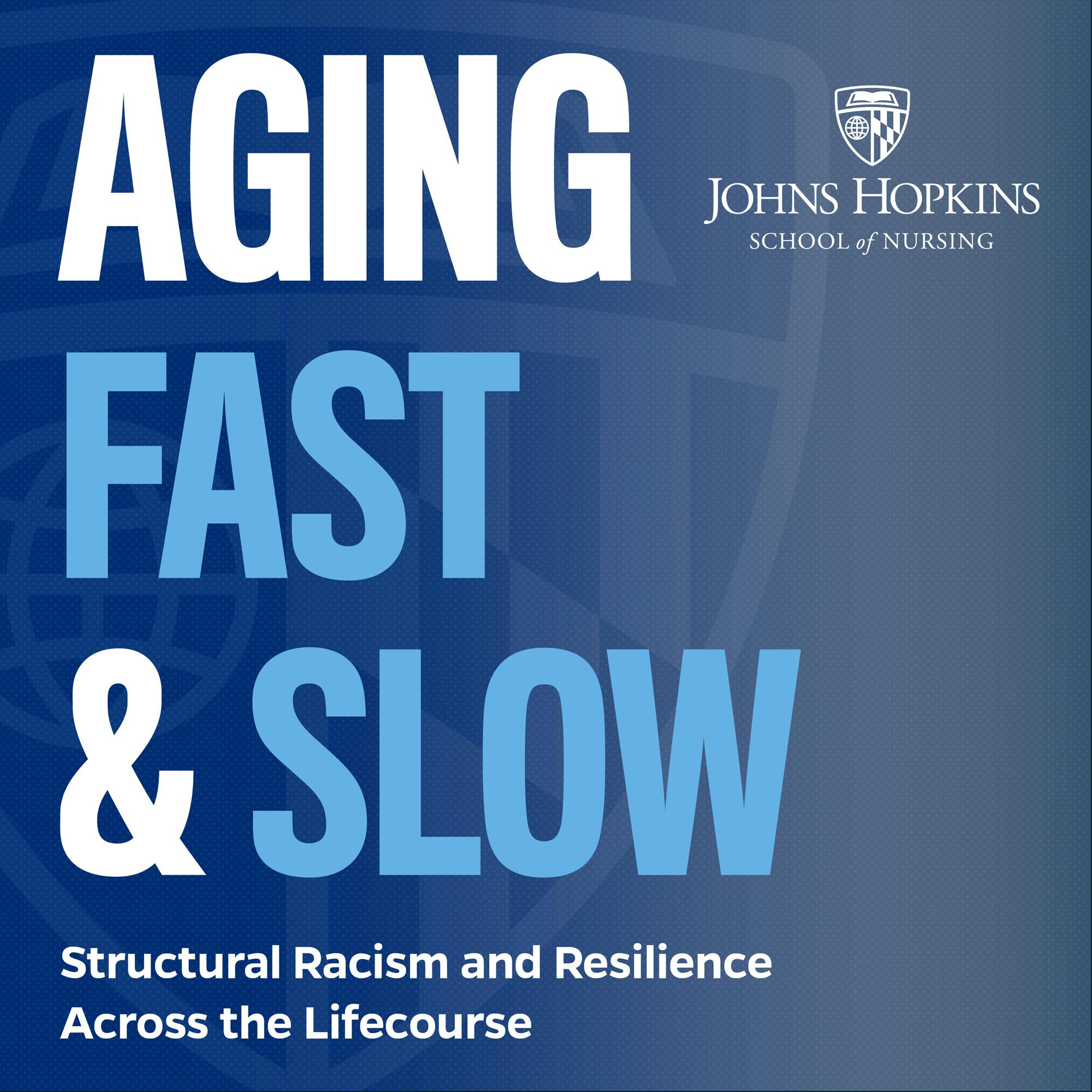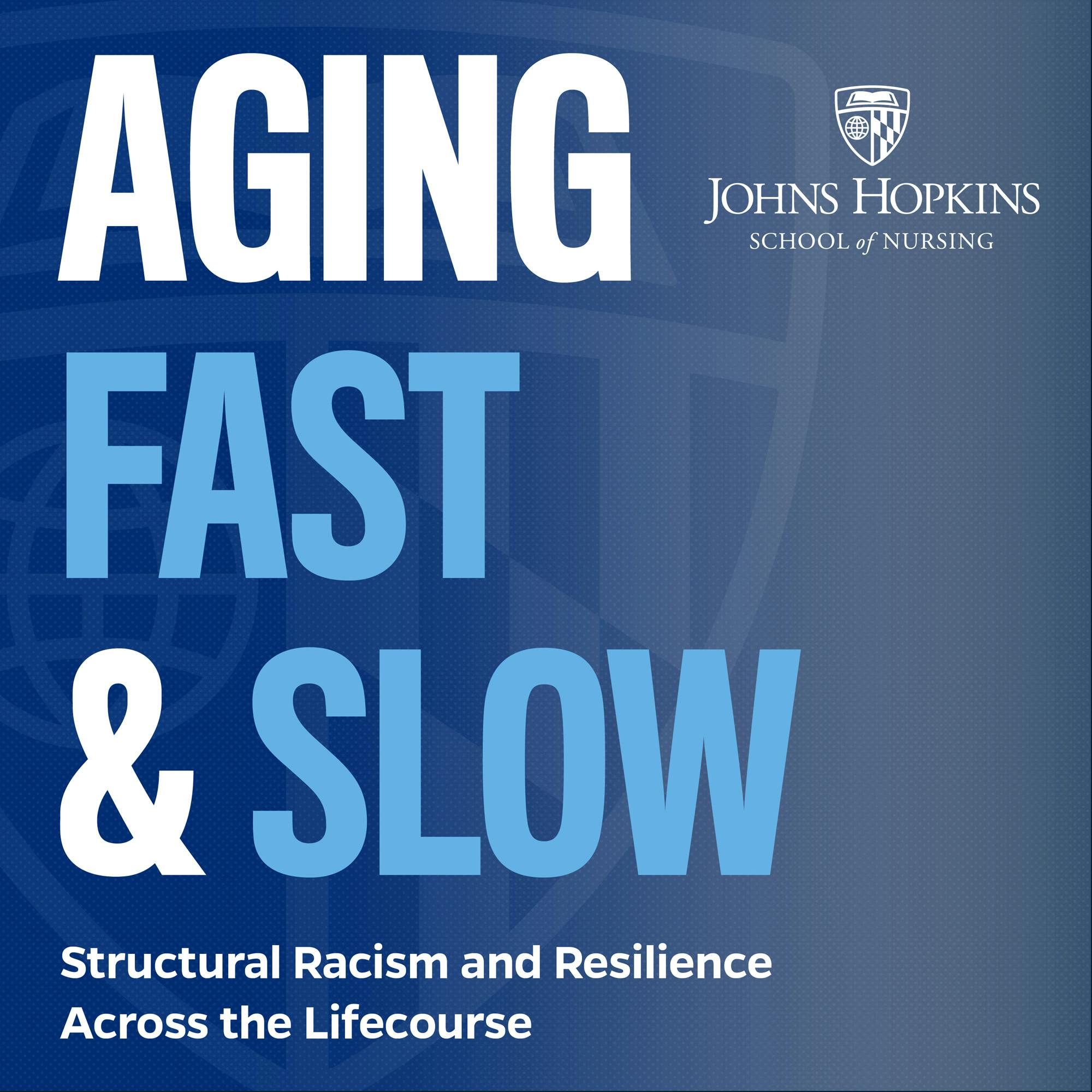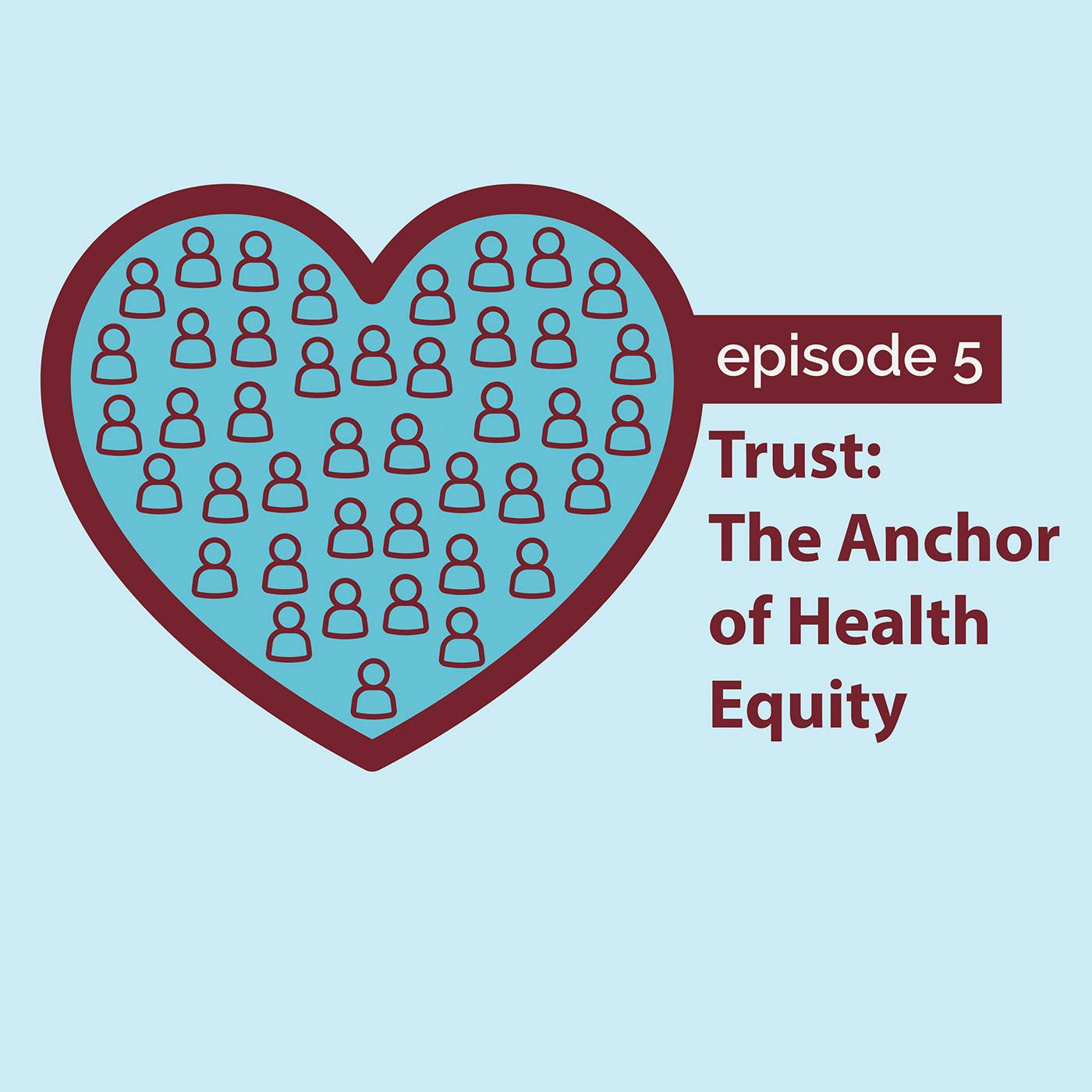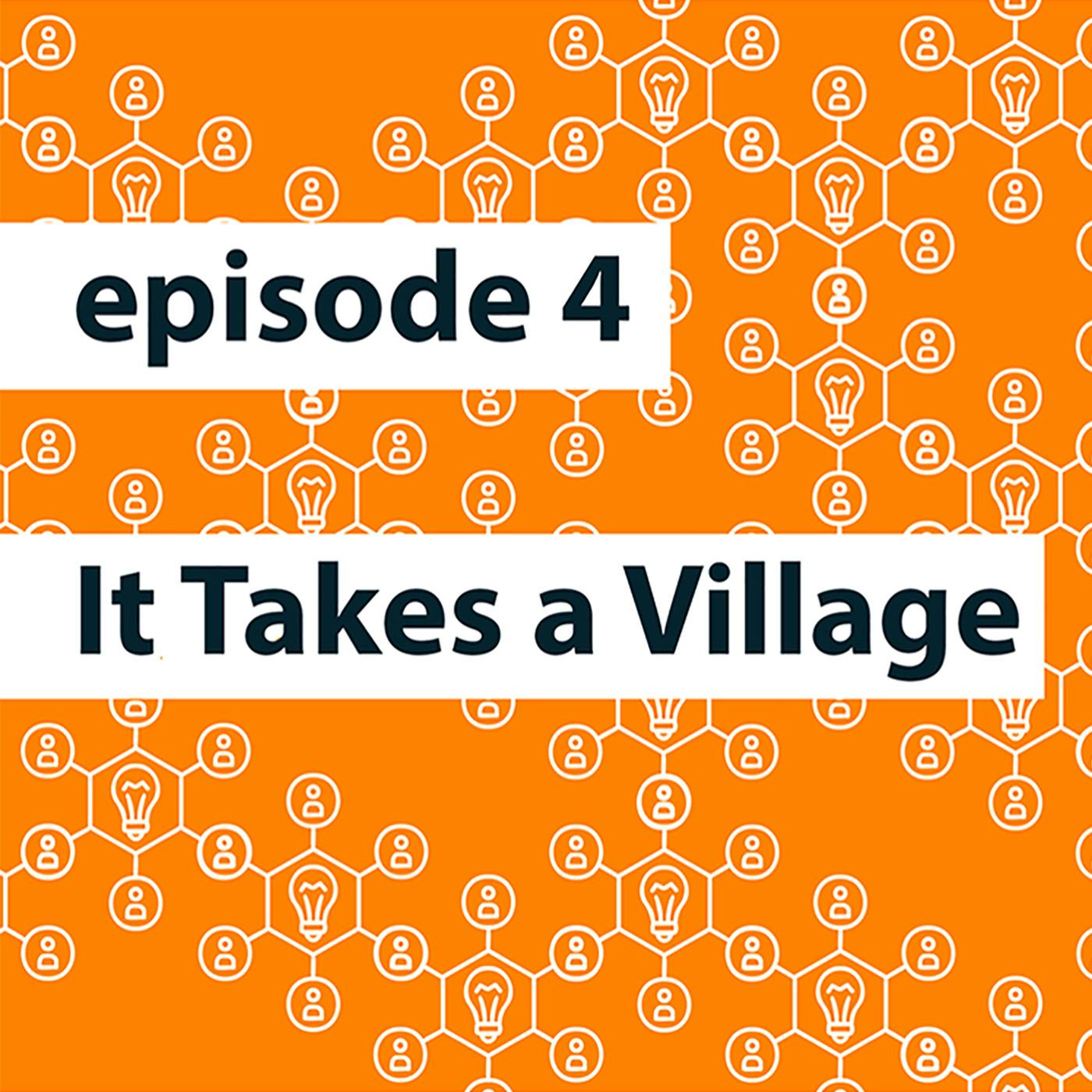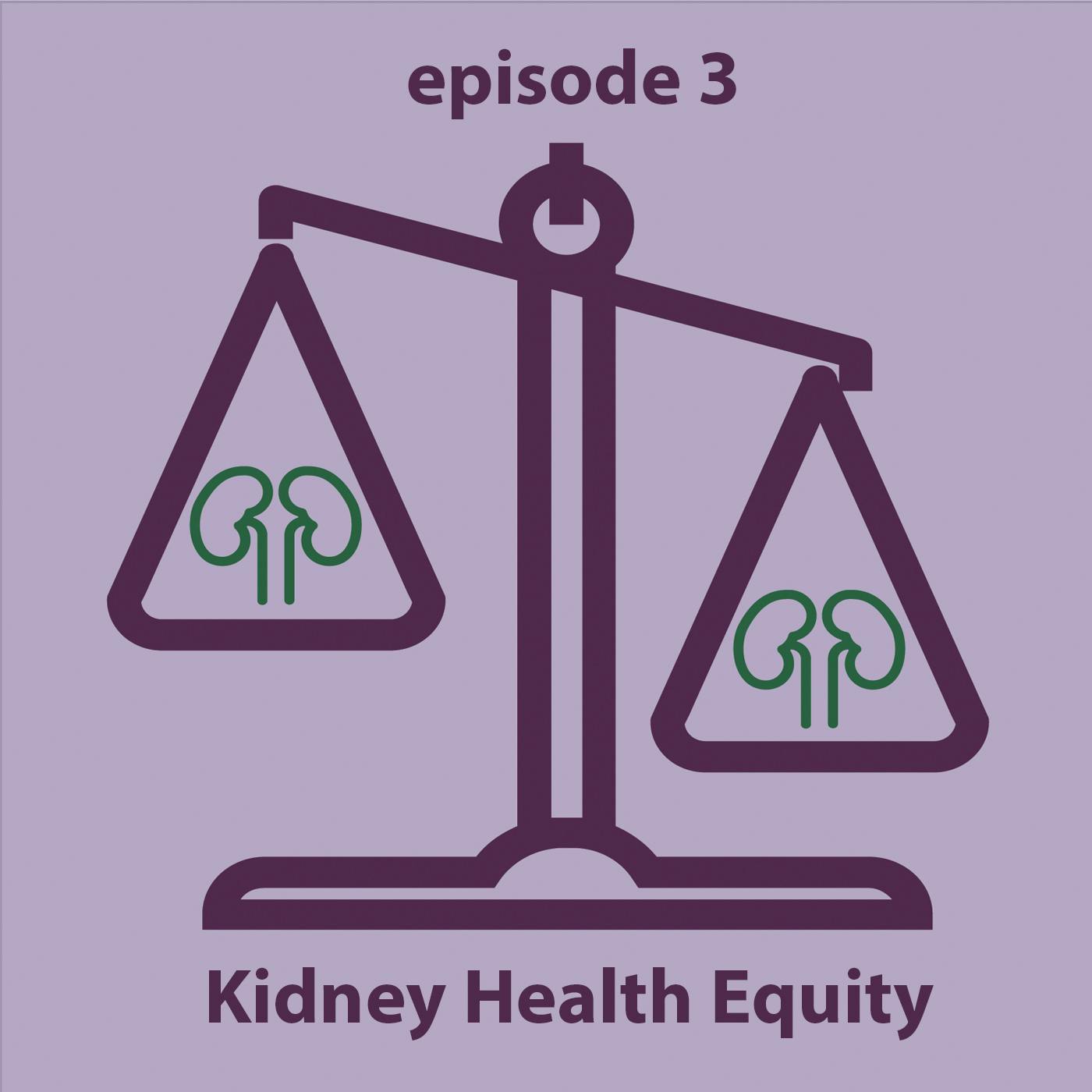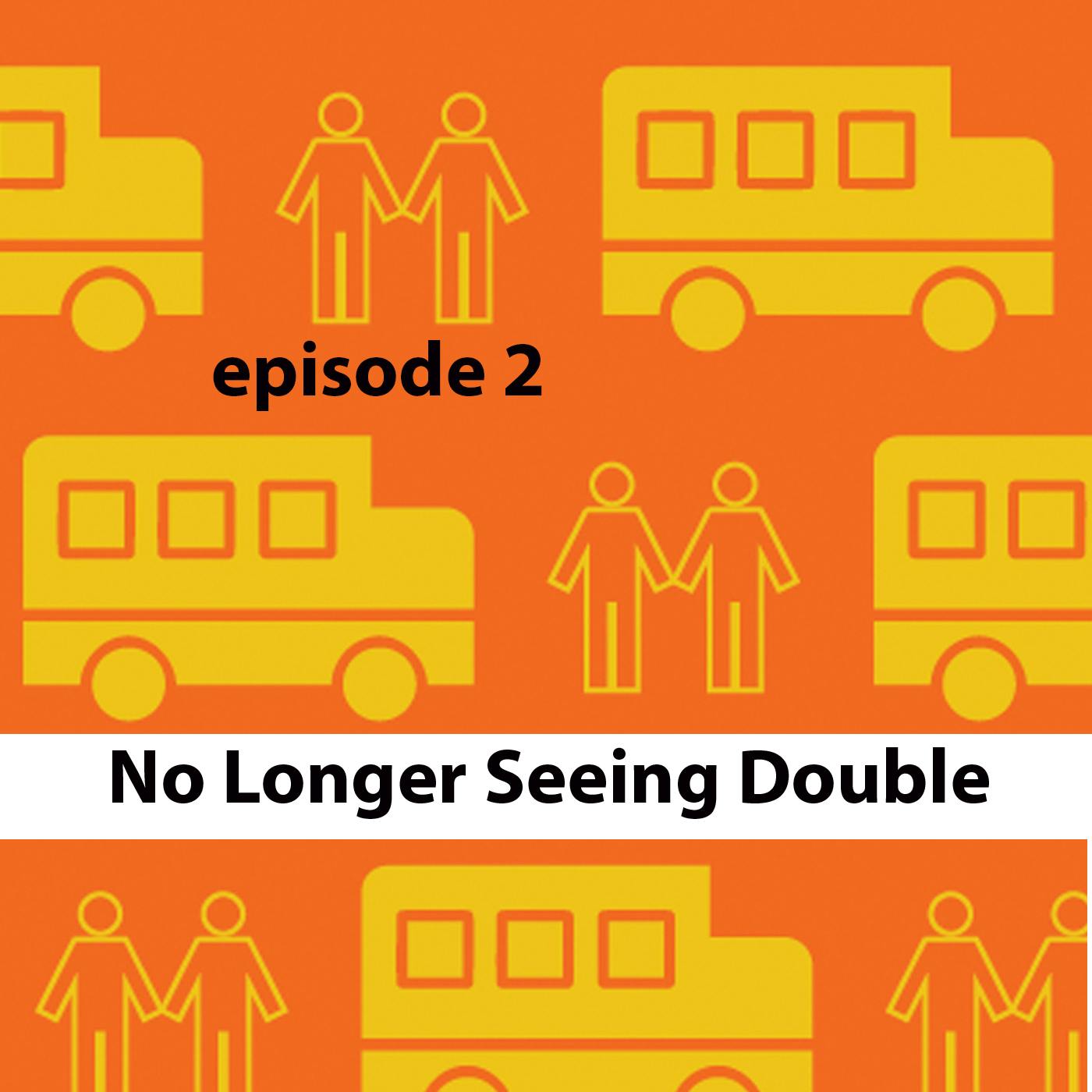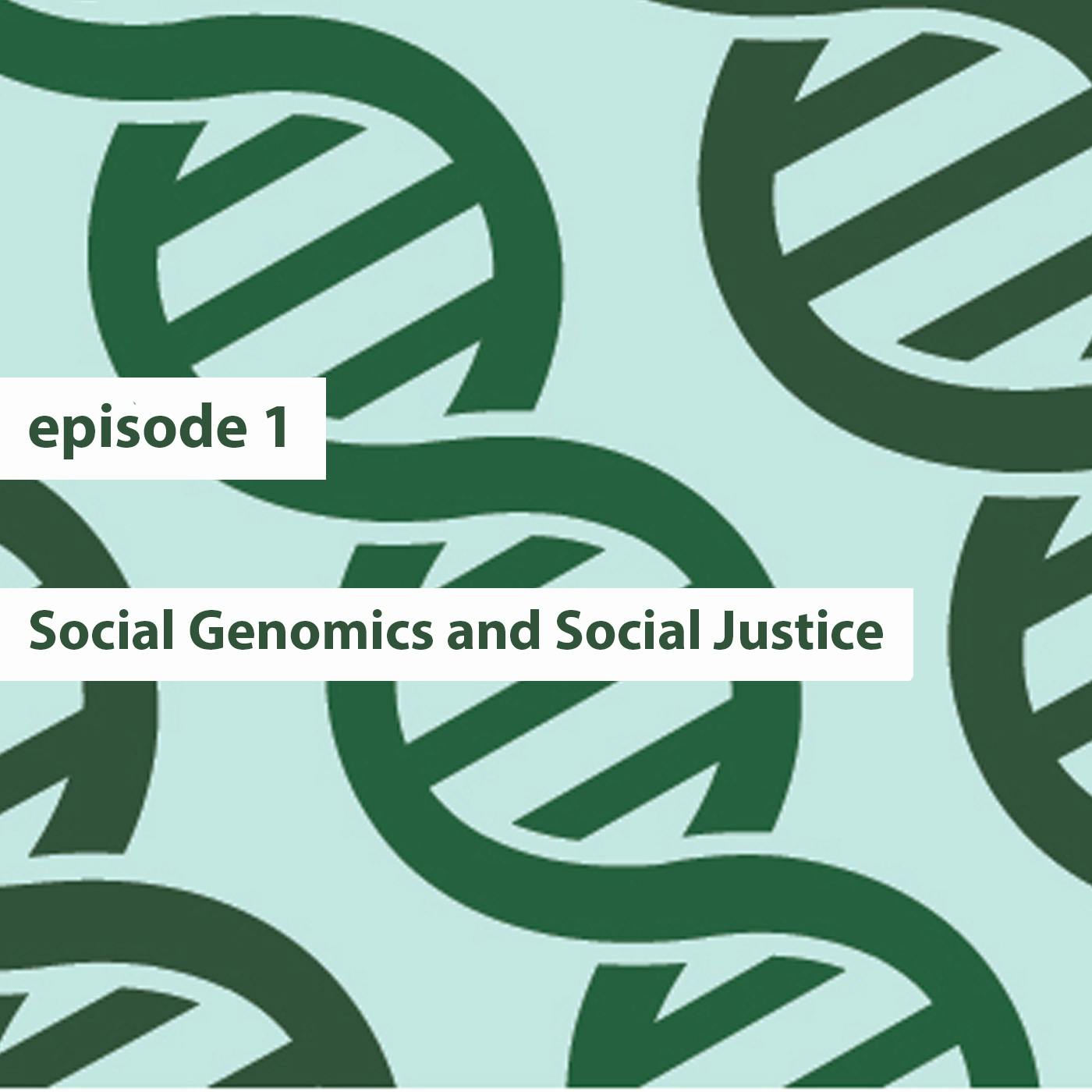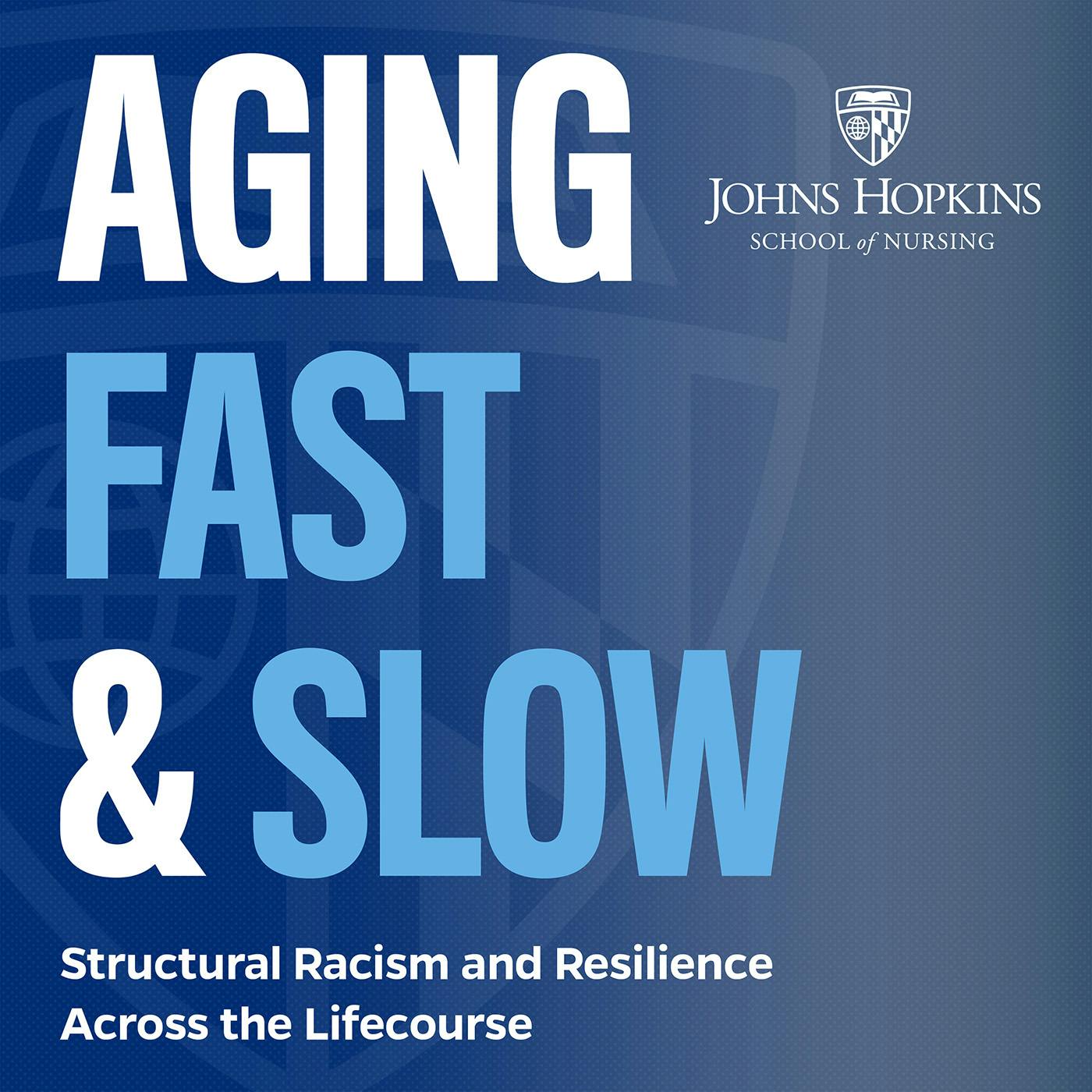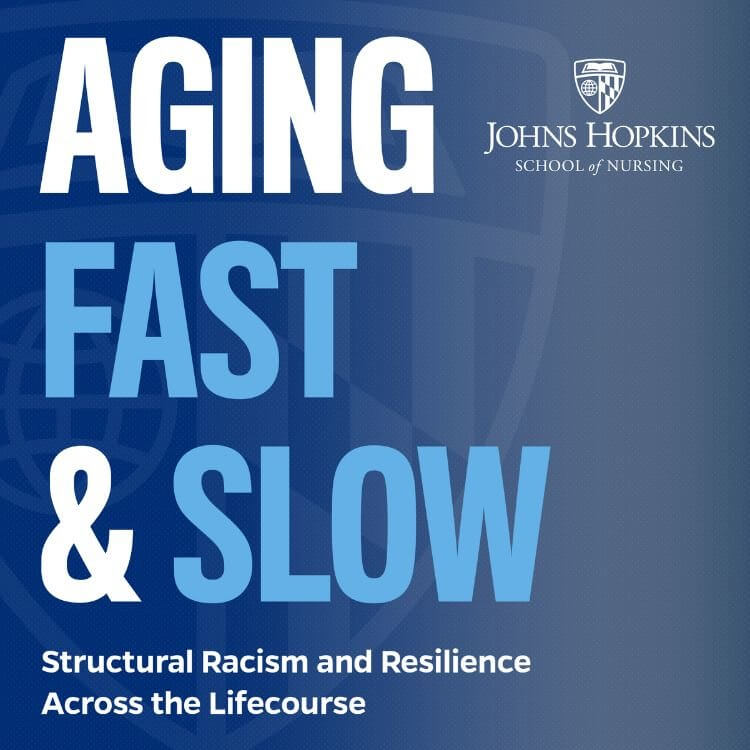
Aging Fast & Slow
Conversations on Structural Racism and Resilience across the Lifecourse
All Episodes
Beyond the Meal: Rethinking Support for Older Adults
In this episode of Aging Fast & Slow, we explore how home- and community-based services—like Meals on Wheels—can enhance the well-being of older adults. Dr. Kali Thomas, Associate
Director of Health Services Research at the Johns Hopkins School of Nursing’s Center for Equity in Aging, joins us to discuss the evolving landscape of long-term care. From in-home support to assisted living, we examine innovative policies and approaches designed to meet both the medical and non-medical needs of our aging population.
References:
Home-Delivered Meals
Thomas KS, Parikh R, Zullo AR, Dosa D. (2018) Home-Delivered Meals and Risk of Self-Reported Falls: Results From a Randomized Trial. J Appl Gerontol. 2018 Jan;37(1):41-57. PMID: 27798291.
Thomas KS, Smego R, Akobundu U, Dosa D. (2017) Characteristics of Older Adults on Waiting Lists for Meals on Wheels: Identifying Areas for Intervention. J Appl Gerontol. 2017 Oct;36(10):1228-1242. PMCID: PMC4877281.
Thomas KS, Akobundu U, Dosa D. (2016) More Than A Meal? A Randomized Control Trial Comparing the Effects of Home-Delivered Meals Programs on Participants’ Feelings of Loneliness. J Gerontol B Psychol Sci Soc. Sci. 2016 Nov;71(6):1049-1058. PMID: 26613620
Thomas KS, Mor V. (2013) Providing more home-delivered meals is one way to keep older adults with low care needs out of nursing homes. Health Aff (Millwood). 2013 Oct;32(10):1796-1802. PMCID: PMC4001076.
Thomas KS, Gadbois EA, Shield RR, Akobundu U, Morris AM, Dosa DM. (2018) “It’s not just a simple meal. t’s so much more”: Interactions between Meals on Wheels Clients and Divers. J Appl Gerontol. 2018 Dec 20:733464818820226 [Epub ahead of print]. PMID: 30569811.
April 1, 2025
The Best of Aging Fast & Slow: A Recap of Powerful Conversations
Join hosts Drs. Sarah Szanton and Deidra Crews for a special segment as they recap highlights from past episodes on structural resilience. From enlightening dialogues on health equity to inspiring advice from researchers, they revisit key moments and share their reflections on the insights gained. Whether you’re a longtime listener or new to the show, this episode offers peak moments to savor from many perspectives.
December 18, 2024
The Power of Social Connection for Community Well-Being
Social connection is vital to community well-being. It fosters support, resilience, and a shared sense of belonging that strengthens both individuals and the community as a whole. In this episode of Aging Fast & Slow, we explore the impact of social connection on community resilience. Dr. Thomas Cudjoe from Johns Hopkins School of Medicine shares research on how isolation affects health and community strength and strategies to foster social connection. Tune in to learn how we can build more connected, resilient communities.
REFERENCES:
Cudjoe TKM, Boyd CM, Wolff JL, Roth DL. Advance care planning: Social isolation matters. J Am Geriatr Soc. 2020 April.
Cudjoe TKM, Kotwal AA. Social distancing amid a crisis in social isolation and loneliness. J Am Geri Soc 2020 May 20.
Cudjoe TKM, Roth DL, Szanton SL, Wolff JL, Boyd CM, Thorpe Jr., RJ. The epidemiology of social isolation: National Health & Aging Trends Study. J Gerontol B Psychol Sci Soc Sci. 2020 Jan 1.
Cudjoe TKM, Selvakumar S, Chung S, Latkin CA, Roth DL, Thorpe Jr., RJ, Boyd CM. (2021). Getting under the Skin: Social isolation and biological markers in the National Health and Aging Trends Study. Journal of the American Geriatrics Society.
Golden SH, Cudjoe TKM, Galiatsatos P, Brownlee D, Flanagan E, Crews DC, Maruthur N, Brown M, Ashby A, Hellmann DB, Knox T, Anderson ME. A perspective on the Baltimore Freddie Gray riots: Turning tragedy into civic engagement and culture change in an academic department of medicine. Acad Med. 2018 December.
October 1, 2024
Taste of it! Lessons learned studying Meals on Wheels and other supports for older adults
In this episode of Aging Fast & Slow, we delve into ways to improve the quality of life of older adults needing home- and community-based services. We are joined by Dr. Kali Thomas, Associate Director of Health Services Research in the Center for Equity in Aging at Johns Hopkins School of Nursing. Dr. Thomas' research spans the long-term services and supports continuum, ranging from in-home services to long-term care in assisted living communities. Together we explore these critical issues and discuss innovative approaches and policies to meet the comprehensive medical and non-medical needs of our aging population.
References:
Home-Delivered Meals
Thomas KS, Parikh R, Zullo AR, Dosa D. (2018) Home-Delivered Meals and Risk of Self-Reported Falls: Results From a Randomized Trial. J Appl Gerontol. 2018 Jan;37(1):41-57. PMID: 27798291.
Thomas KS, Smego R, Akobundu U, Dosa D. (2017) Characteristics of Older Adults on Waiting Lists for Meals on Wheels: Identifying Areas for Intervention. J Appl Gerontol. 2017 Oct;36(10):1228-1242. PMCID: PMC4877281.
Thomas KS, Akobundu U, Dosa D. (2016) More Than A Meal? A Randomized Control Trial Comparing the Effects of Home-Delivered Meals Programs on Participants’ Feelings of Loneliness. J Gerontol B Psychol Sci Soc. Sci. 2016 Nov;71(6):1049-1058. PMID: 26613620
Thomas KS, Mor V. (2013) Providing more home-delivered meals is one way to keep older adults with low care needs out of nursing homes. Health Aff (Millwood). 2013 Oct;32(10):1796-1802. PMCID: PMC4001076.
Thomas KS, Gadbois EA, Shield RR, Akobundu U, Morris AM, Dosa DM. (2018) “It’s not just a simple meal. It’s so much more”: Interactions between Meals on Wheels Clients and Drivers. J Appl Gerontol. 2018 Dec 20:733464818820226 [Epub ahead of print]. PMID: 30569811.
Title III State Expenditures on In-Home Services
Thomas KS. (2014) The relationship between Older Americans Act in-home services and low-care residents in nursing homes. J Aging Health. 2014 Mar;26(2):250-260. PMCID: PMC4112387.
Veteran-Directed Care / Self-Directed Care
Yuan Y, Thomas KS, Frakt AB, Pizer SD, Garrido MM. (2019) Users Of Veteran-Directed Care And Other Purchased Care Have Similar Hospital Use And Costs Over Time. Health Affairs. 2019. 38(6):1037-104569.
Thomas KS, Allen SM. (2016) Interagency partnership to deliver Veteran-Directed Home and Community-Based Services: Interviews with Aging and Disability Network agency personnel regarding their experience with partner Department of Veterans Affairs medical centers. J Rehabil Res Dev. 2016;53(5):611-618. PMID: 27898159.
Yuan Y, Thomas KS, Van Houtven CH, Price ME, Pizer SD, Frakt AB, Garrido MM. (2022) Fewer potentially avoidable health care events in rural veterans with self-directed care versus other personal care services. J Am Geriatr Soc. 2022 May;70(5):1418-1428. doi: 10.1111/jgs.17656. Epub 2022 Jan 13. PMID: 35026056; PMCID: PMC9106846
Access to Benefits
Thomas KS, Corneau E, Van Houtven C, Aron D, Dosa D, Allen SM. (2021) Inequities in Access to VA’s Aid and Attendance Pension Benefit to Finance Veterans’ Long-Term Care. Health Serv Res. 2021 Jun;56(3):389-399. PMID: 33634467; PMCID: PMC8143693.
Kennedy KA, Corneau E, Rickard T, Mills WL, Thomas KS. VA Social Workers Identify Factors Predictive of Enrollment and Variability in Veterans’ Access to Aid and Attendance Benefits. J Gerontol Soc Work. 2023 Jul 24:1-21. PMID: 37483074
August 2, 2024
Resilient Roots: Indigenous Health Equity
Join us for this episode of Aging Fast & Slow as we explore the structural resilience of Indigenous Peoples amidst systemic inequities. Dr. Allison Kelliher, Associate Faculty for Indigenous Knowledge and Practice Systems at Johns Hopkins School of Nursing, sheds light on pathways to positive change and health equity. With her unique background as an Alaska Native Traditional Healer and Integrative Physician, Dr. Kelliher offers invaluable insights into promoting resilience and well-being among Indigenous communities.
References
United Nations Economic and Social Council. Indigenous determinants of health in the 2030 Agenda for Sustainable Development. April 2023.
Kelliher, A et al. Indigenous determinants of health: a unified call for progress. The Lancet. June 21, 2023.
Kelliher, A et al. Status of Maternal Cardiovascular Health in American Indian and Alaska Native Individuals: A Scientific Statement From the American Heart Association. Circulation: Cardiovascular Quality and Outcomes. June 2023.
May 7, 2024
Policy Pathways to Community Resilience
Policies are pivotal for shaping the structural resilience of communities, influencing their ability to navigate and overcome adversity. In this episode, we are joined by Dr. Vincent Guilamo-Ramos, Director of The Institute for Policy Solutions at the Johns Hopkins School of Nursing, to explore how policies, social determinants of health, and structural resilience intersect to shape community well-being and examine how thoughtful policy frameworks can either bolster or hinder a community's ability to overcome adversity.
References
Guilamo-Ramos V et al. Nurse-led approaches to address social determinants of health and advance health equity: A new framework and its implications. Nursing Outlook. November/December 2023.
Guilamo-Ramos V et al. Paternal Communication and Sexual Health Clinic Visits Among Latino and Black Adolescent Males With Resident and Nonresident Fathers. Journal of Adolescent Health. September 2023.
Guilamo-Ramos V et al. Community-engaged Mpox vaccination provides lessons for equitable health care in the United States. Nature Medicine. September 2023.
April 2, 2024
Building Resilient Communities
Ongoing research is shedding light on the complex dimensions of structural resilience. In this episode, we are joined by Dr. Kamila Alexander, an Associate Professor at Johns Hopkins School of Nursing. Dr. Alexander's research focuses on understanding how socio-structural factors impact health outcomes of marginalized youth, particularly regarding trauma, violence, and sexual, mental, and reproductive health. She shares insights from her work on how communities can overcome challenges, utilize resources, and promote sustainable development despite facing adversity.
References
Alexander KA et al. Intervention Approaches to Address Intimate Partner Violence and HIV: a Scoping Review of Recent Research. Current HIV/AIDS Reports. September 2023.
Alexander KA et al. Contraceptive Use Among Women Experiencing Intimate Partner Violence and Reproductive Coercion: The Moderating Role of PTSD and Depression. Violence Against Women. February 2023.
Alexander KA et al. Having a Child Meant I had a Real Life: Reproductive Coercion and Childbearing Motivations Among Young Black Men Living in Baltimore. Journal of Interpersonal Violence. June 2019.
Alexander KA, Szanton SL, et al. Life Space and Activity Space Measurement: Making ‘Room’ for Structural Racism. The Gerontogist. November 2023.
March 4, 2024
Stronger Together: Resilience and Civic Action
This episode delves into the powerful connection between resilience and civic engagement that enables underserved communities to not just withstand systemic challenges but to emerge stronger. Our guest for this conversation is Dr. Hahrie Han, the Director of the SNF Agora Institute and a Professor of Political Science at Johns Hopkins University. Dr. Han explores how grassroots organizations transform community engagement into political influence. Join us as we explore the juncture of societal structures, grassroots movements, and the enduring resilience of communities striving for a more equitable future.
References
Han H, Kim, JY, de Vries, M. The unequal landscape of civic opportunity in America. Nature Human Behavior. November 2023.
Han H, McKenna E, Oyakawa M. Prisms of the People. University of Chicago Press. 2021.
February 5, 2024
Art, Mutualism, and Structural Resilience
Grandmothers, coaches, school nurses, barbers — what are the roles of non-traditional community leaders like these and what critical roles can they play in engaging historically divested communities and isolated individuals? How can art, imagination, and collective action model best practices for more equitable structures? We are joined by Marisa Morán Jahn, an artist whose work with low-wage workers, new immigrant families, and public housing residents has been described by the Chicago Tribune as exploring “civic spaces and the radical art of play.” She is Director of Integrated Design at Parsons/The New School and a Senior Researcher at MIT. We are also joined by Micah Campbell-Smith, a community developer who launched Black Pittsburgh Matters and has designed policies and trainings with New York’s Community Preservation Corporation and Pittsburgh’s Urban Redevelopment Authority.
January 3, 2024
Aging Fast & Slow Season 4 Trailer
For the past three seasons, we've delved deep into the critical issue of structural racism, shedding light on its complex web of historical, political, and social factors that contribute to its persistence. Another critical aspect of this topic pertains to the resilience and fortitude cultivated within communities in the face of structural racism. Our upcoming podcast season will feature scientists, policy experts, and innovators to shed light on the importance of building personal and communal resilience as a means of empowerment and healing in the face of systemic injustices.
December 15, 2023
Measuring the Immeasurable
The complex aspects of structural racism—encompassing policies, practices, and cultural biases—make it difficult to measure, often requiring innovative methods that account for historical and contemporary disparities. In this episode, we speak with Dr. Karen Bandeen-Roche, a distinguished biostatistician who has mastered the art of quantifying the unquantifiable. Dr. Bandeen-Roche guides us through her expertise in measuring elusive variables such as frailty and how this skill could illuminate aspects of healthcare's structural racism.
References
Bandeen-Roche K, Gross A L, et al. Principles and Issues for Physical Frailty Measurement and Its Clinical Application. The Gerontological Society of America. July 2019.
Bandeen-Roche K, Xue Q-L, et al. Phenotype of Frailty: Characterization in the Women’s Health and Aging Studies. Journal of Gerontology. March 2006.
December 4, 2023
Shaping a Fair Health Landscape
In the realm of addressing health disparities and fostering health equity, the intricacies of socioeconomic factors and their profound influence cannot be understated. In this podcast episode, we welcome Dr. Laura Samuel, an Assistant Professor at the Johns Hopkins School of Nursing, whose expertise in addressing socioeconomic disparities offers profound insights that contribute to the broader dialogue on health equity. Tune in as we explore the interplay of socioeconomic factors that shape health outcomes, and discover the transformative potential of this work in reshaping the landscape of health disparities.
References
Samuel L, Dwivedi P, Hladek M, Cudjoe T, Drazich B, Li Q, Szanton S. The effect of COVID-19 pandemic-related financial challenges on mental health and well-being among US older adults. Journal of the American Geriatric Society. October 2021.
Samuel L, Crews D, Swenor B, Szanton S, et al. Supplemental Nutrition Assistance Program Access and Racial Disparities in Food Insecurity. JAMA Network Open. June 2023.
Samuel L, Wright R, Taylor J, Lavigne L, Szanton S. Social Norms About Handling Financial Challenges in Relation to Health-Protective Capacity Among Low-Income Older Adults. The Gerontologist, May 2022.
November 2, 2023
Reshaping Systems of Discrimination
In this podcast episode, we explore how neighborhoods and the policies that govern those communities can reveal long-standing issues of racism within our society. Our guest, Dr. Odis Johnson, Jr. from Johns Hopkins University, is an expert in multiple fields, including health policy, education, and sociology. Dr. Johnson helps us understand how these issues have led to ongoing inequalities, particularly for marginalized communities. We discuss how past discriminatory policies still impact us today and why we need significant changes in our systems. Dr. Johnson also explains how these policies affect the quality of schools in different neighborhoods and their impact on students' success.
References
Johnson Jr. O, Jabbari J. Suspended While Black in Majority White Schools: Implications for Math Efficacy and Equity. The Educational Forum. November 2021.
Johnson Jr. O. Exogenous Policy, Racial Avoidance, and the Qualified Relevance of Macroeconomic Change to Metropolitan Inequality. Teachers College Record: The Voice of Scholarship in Education. May 2022.
October 3, 2023
Roots of Inequity: Native American Health
From enduring the consequences of forced displacement and cultural disruption to grappling with inadequate resources and discriminatory policies, Native American communities have faced multifaceted challenges that have deeply impacted their ability to receive equitable and effective healthcare. Join us in this enlightening episode as we engage with Dr. Emily Haozous, a distinguished Research Scientist at the Pacific Institute for Research and Evaluation. Through the lens of her research, Haozous delves into the historical and systemic conditions that have limited healthcare access for these communities, uncovering deeply rooted challenges and disparities. Her pioneering contributions shed light on these critical issues, striving to bridge gaps in understanding and advocating for impactful change within these healthcare systems.
References
Haozous EA, Trott Jaramillo E, Willging CE. Getting to know: American Indian elder health seeking in an under-funded healthcare system. Qualitative Research in Health. December 2021.
Haozous EA, Lee J, Soto C. Urban American Indian and Alaska Native Data Sovereignty: Ethical Issues. American Indian and Alaska Native Mental Health Research. 2021.
Jaramillo ET, Haozous EA, Willging CE. The Community as the Unit of Healing: Conceptualizing Social Determinants of Health and Well-Being for Older American Indian Adults. Gerontologist. May 2022.
September 6, 2023
Navigating Structural Racism’s Terrain
Structural racism has attracted increasing interest as an explanation for racial disparities in health. But structural racism has often been measured using single-indicator proxies such as housing discrimination. This approach leaves important aspects of structural racism unaccounted for. We kick off season 3 with social epidemiologist and associate professor at the Johns Hopkins Bloomberg School of Public Health, Dr. Lori Dean. Dean is leading the way in exploring new definitions and methods to measure structural racism. Dean discusses her groundbreaking research delving into the influence of individual- and neighborhood-level social and economic factors on health disparities and outcomes for those managing chronic illnesses.
Reference
Dean, LT, Thorpe RJ. What Structural Racism Is (or Is Not) and How to Measure It: Clarity for Public Health and Medical Researchers. American Journal of Epidemiology. August 2022
August 2, 2023
Unearthing Root Causes of Structural Racism
Structural racism is more than private prejudices held by individuals. It is embedded in institutional policies and practices that unfairly minoritize and disadvantage certain groups while advantaging others. Addressing structural racism then requires not only changing individual attitudes, but also identifying and changing those policies and institutions that foster a racial hierarchy. We are joined by trailblazer Dr. Zinzi Bailey, a social epidemiologist and Assistant Professor at the University of Miami Miller School of Medicine and the Sylvester Comprehensive Cancer Center. Drawing upon her extensive experience in quantitative and qualitative methods of assessing social determinants of health inequities, Dr. Bailey discusses how she uses this information to dismantle structural racism.
References
Adkins-Jackson PB, Chantarat T, Bailey ZD, and Ponce NA. Measuring Structural Racism: A Guide for Epidemiologists and Other Health Researchers. American Journal of Epidemiology. September 2021
Bailey ZD, Feldman JM, Bassett MT. How Structural Racism Works — Racist Policies as a Root Cause of U.S. Racial Health Inequities. The New England Journal of Medicine. February 2021
Bailey ZD, Krieger N, Agénor M, Graves J, Linos N, Bassett MT. Structural racism and health inequities in the USA: evidence and interventions. The Lancet. April 2017
May 3, 2023
Racism: A Huge Waste of Time
Time may be a social determinant of health that is influenced by racism across the life course. Unfortunately, time as a social resource is often not considered in most studies of health disparities. Dr. Gilbert Gee, Chair of the Department of Community Health Sciences at the Fielding School of Public Health, UCLA, joins us to examine racism through the lens of time, showing us how historically it has been stolen from racial and ethnic minorities. By more deeply considering time, researchers such as Gee are advancing our understanding of racial inequities in health. Join us for this candid, thought-provoking take on history and race that may make you reconsider your understanding of time and health equity.
References
Gee GC, Ford CL. Structural Racism and Health Inequities, Old Issues, New Directions. April 2011
Gee GC, Hing A, Mohammed S, Tabor DC, Williams DR. Racism and the Life Course: Taking Time Seriously. American Journal of Public Health. January 2019
Gee GC, Hicken MT. Structural Racism: The Rules and Relations of Inequity. Ethnicity and Disease. May 2021
April 5, 2023
Birthing Racial Health Equality
Blacks have the highest infant mortality rate of any racial or ethnic group in the United States. And the disparities are stark. Black pregnant people in the U.S. experience preterm birth at rates approximately 2 times that of White pregnant people and Black infants are twice as likely to die within the first year. In this episode, we are joined by University of Minnesota health equity researchers Drs. Rachel Hardeman and Tongtan (Bert) Chantarat who are working to change that pattern and advance reproductive health equity. By exploring replicable and theoretically sound measures of structural racism, these researchers hope to reveal evidence of its harm to maternal-child health and thereby identify pathways for intervention.
References
1. Hardeman RR, Homan PA, Chantarat T, Davis BA, Brown TH. Improving The Measurement Of Structural Racism To Achieve Antiracist Health Policy, Health Affairs. February 2022
2. Chantarat T, Van Riper DC, Hardeman RR, Multidimensional structural racism predicts birth outcomesfor Black and White Minnesotans, Health Services Research. June 2022
3. Multidimensional Measurement of Structural Racism: Learnings from an Interview with Dr. Tongtan (Bert) Chantarat, Evidence for Action Blog. August 2022
4. Hardeman RR, Chantarat T, Smith ML, et al. Association of Residence in High–Police Contact Neighborhoods With Preterm Birth Among Black and White Individuals in Minneapolis, JAMA Network Open. December 2021
March 1, 2023
Measurement Precedes Change
Structural racism is a core cause of health inequities. Providing evidence of that relationship requires a reliable method to measure structural racism. Frequently, measurements of racism are too simplistic and feed the false narrative that race, rather than racism, is the cause of racial health inequities. In this episode, Dr. Roland J. Thorpe, Jr., a gerontologist and social epidemiologist at the Johns Hopkins Bloomberg School of Public Health, joins podcast hosts Drs. Szanton and Crews to discuss a framework for assessing structural racial discrimination across contexts, geography, and the life course with the aim of dismantling structural racism and advancing health equity.
References:
Thorpe RJ, Szanton SL, LaFave SE. Structural Racial Discrimination and Structural Resilience: Measurement Precedes Change. The Journals of Gerontology. February 2022
LaFave SE, Bandeen-Roche K, Gee G, Thorpe RJ, Li Q, Crews D, Samuel L, Cooke A, Hladek M, Szanton SL. Quantifying Older Black Americans’ Exposure to Structural Racial Discrimination: How Can We Measure the Water In Which We Swim? Journal of Urban Health. April 2022
Dean LT, Thorpe RJ. What Structural Racism Is (or Is Not) and How to Measure It: Clarity for Public Health and Medical Researchers. American Journal of Epidemiology. September 2022
February 7, 2023
To Measure is to Know
Drs. Sarah Szanton and Deidra Crews kick off Aging Fast & Slow Season 2 with guest Dr. Paris "AJ" Adkins-Jackson, Assistant Professor in the Departments of Epidemiology and Sociomedical Sciences at Columbia University Mailman School of Public Health. One big question for health researchers is how to measure structural racism in different places and systems. Dr. Adkins-Jackson is among the leading number of scientists working in this area. She joins us to discuss her research on the health impact of structural racism and to provide recommendations for how epidemiologists and other health researchers can measure structural racism, including approaches taken by other fields.
References:
1. Adkins-Jackson PB, Incollingo Rodriguez AC. Methodological approaches for studying structural racism and its biopsychosocial impact on health. Nursing Outlook. September 2022
2. Adkins-Jackson PB, Chantarat T, Bailey ZD, Ponce NA. Measuring Structural Racism: A Guide for Epidemiologists and Other Health Researchers. American Journal of Epidemiology. April 2022
3. Adkins-Jackson PB, Jackson-Preston PA, Hairston T. “The only way out”: How self-care is conceptualized by Black women. Ethnicity & Health. 2022
January 3, 2023
Welcome to Season 2: Aging Fast & Slow
Tune in as we interview cutting-edge scientists, policy experts, and innovators as we seek to understand structural discrimination, and resilience across the lifecourse and the impact on health inequities with aging. Podcast guests will speak about their research or work, ‘aha’ moments, and next topics for exploration.
December 12, 2022
Trust: The Anchor of Health Equity
Wrapping up Season 1, Dr. Lisa Cooper stresses the importance of trust as a key ingredient for the patient-physician relationship, community engagement, and crisis response. Podcast References:
Race, Gender, and Partnership in the Patient-Physician Relationship
Unmasking and Addressing COVID-19’s Toll on Diverse Populations
A Game Plan to Help the Most Vulnerable
COVID-19 and Health Equity – A New Kind of “Herd Immunity”
Twitter: @LisaCooperMD, @JHhealthequity, @JHUrbanHealth
Continue the Conversation:
Twitter: @agingcenter
Email: agingcenter@jhu.edu
Episode 5 Transcript
June 3, 2020
It Takes a Village: Aging2.0
Episode 4 of Aging Fast & Slow highlights how business collaborations drive systems change to achieve social impact. Guest Stephen Johnston describes how Aging2.0 accelerates innovation through its global community and collective intelligence platform to improve the lives of older adults. Podcast References:
Aging2.0
Connect with your local Aging2.0 Chapter
The Collective
Aging2.0’s COVID-19 Request for Critical Topics and Innovations
Twitter: @sdbj, @Aging20, @TheA2Collective
Continue the Conversation:
Twitter: @agingcenter
Email: agingcenter@jhu.edu
Aging Fast & Slow Episode 4 Transcript
May 6, 2020
Kidney Health Equity: We’re All Invested
Even amid the COVID-19 outbreak, chronic conditions don't take a break. In honor of National Kidney Month, we talk to Aging Fast & Slow’s own Dr. Deidra Crews, a nephrologist at Johns Hopkins. She tells us how kidney health inequities impact us all and how common they are. Dr. Crews also helps us understand what epidemiology and intervention research are, how they differ, and how she uses both in her work. Podcast References:
5 Plus Nuts & Beans for Kidneys Study
Johns Hopkins Center for Health Equity
Twitter: @DrDeidraCrews
Continue the Conversation:
Twitter: @agingcenter
Email: agingcenter@jhu.edu
Episode 3 Transcript
April 1, 2020
No Longer Seeing Double
Summary: Dr. Keith Whitfield, an expert in aging among African Americans and the Provost at Wayne State University, joins hosts Dr. Sarah Szanton and Dr. Deidra Crews for the second episode of Aging Fast & Slow. Together they discuss the impact of desegregation on cognition by looking at stress and longevity within and among African American families. Podcast References:
Publications
Education in Time: Cohort Differences in Educational Attainment in African-American Twins
Education Desegregation and Cognitive Change in African American Older Adults
Book recommendations
Handbook of Minority Aging by Keith Whitfield and Tamara Baker
Continue the Conversation:Twitter:@agingcenter
Email: agingcenter@jhu.edu
Episode 2 Transcript
March 4, 2020
Social Genomics and Social Justice
Episode Summary: Hosts Dr. Sarah Szanton and Dr. Deidra Crews kick off Aging Fast & Slow with guest Dr. Elissa Epel, professor of psychiatry at UCSF. Dr. Epel’s research seeks to understand the root of health disparities, and the role of chronic stress within aging. Together they unpack her recent work which reveals how the impact of systemic oppression is transmitted intergenerationally. Podcast References:Sign up: UCSF’s Aging, Metabolism, & Emotional Research newsletter
Publications:
Accelerated telomere shortening in response to life stress
Racial discrimination and telomere shortening among African Americans: The Coronary Artery Risk Development in Young Adults (CARDIA) Study
Can Childhood Adversity Affect Telomeres of the Next Generation? Possible Mechanisms, Implications, and Next-Generation Research
More than a feeling: A unified view of stress measurement for population science.
Continue the Conversation:Twitter: @agingcenter
agingcenter@jhu.edu
AgingFast & Slow Episode 1 Transcript
February 4, 2020
Welcome to Season 1: Aging Fast & Slow
Some people age faster than others, but why? Our podcast hosts Dr. Sarah Szanton, a nurse practitioner with a research degree, and Dr. Deidra Crews, a nephrologist, will seek to answer this question. They will talk to scientists, policy experts, and innovators to better understand aging across the life course, and also differences in aging - due to societal structures, community factors, and even our own cells. Learn More: https://nursing.jhu.edu/agingfastandslow
January 27, 2020
About Aging Fast & Slow
Tune in as we engage cutting-edge scientists, policy experts, and thought leaders to better understand structural discrimination, resilience, and the impact on aging across the lifecourse. The podcast series features conversations with experts to explore the health disparities caused by structural discrimination and discuss programs and policies that aim to move the health equity needle.

